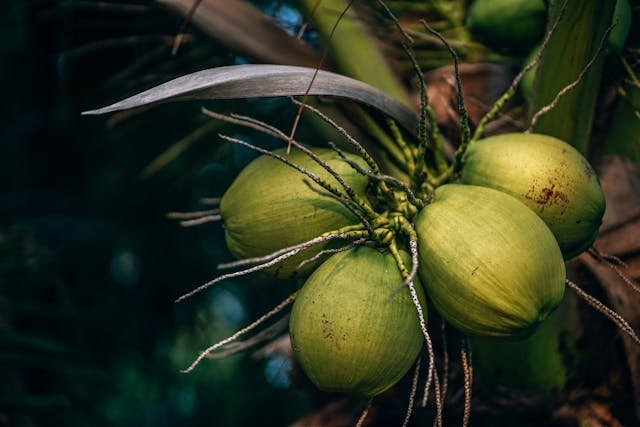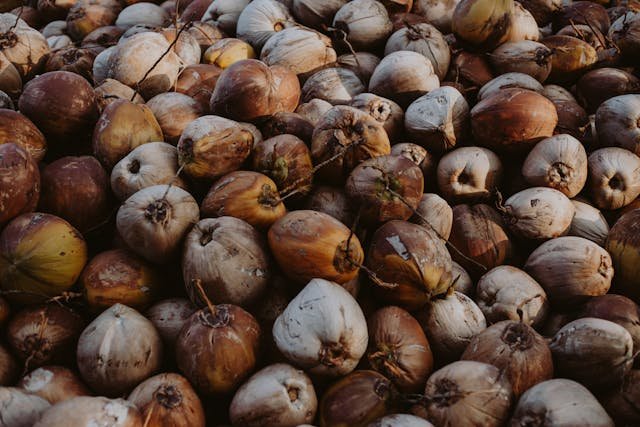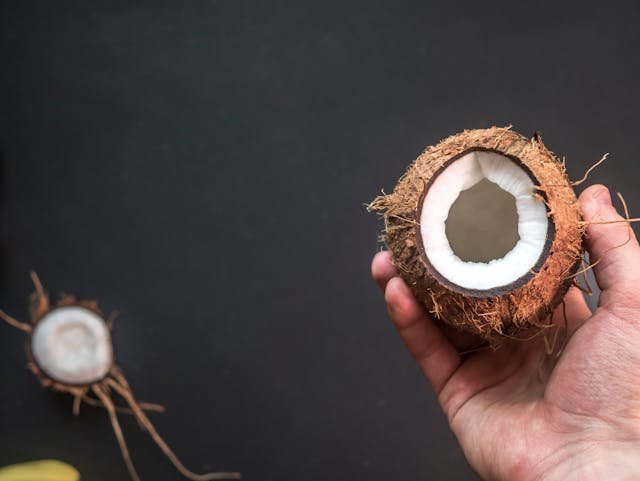Expert Tips On How to Buy and Store Coconut
Buying and storing coconut might seem like a simple task, but ensuring that you get the freshest and highest-quality coconut involves a few key considerations. Whether you’re a seasoned coconut enthusiast or a curious newcomer, this guide will take you through the ins and outs of making the right choices when it comes to purchasing and storing this versatile tropical fruit.

Choosing the Right Coconut
Selecting the perfect coconut is the first step to enjoying its delightful taste and numerous health benefits.
Check Aroma
When buying a fresh coconut, start by assessing its aroma. A good coconut should have a clean and sweet fragrance. If it smells off or is moldy, it might be an indication that the coconut is not fresh.
Listen for Water Content
Give the coconut a gentle shake. A sloshing sound indicates that there’s ample water inside, a sign of a well-hydrated and fresh coconut.
Inspect the Husk
The husk of the coconut should be firm and without any soft spots. A soft or mushy husk may suggest that the coconut is past its prime.
Examine Color
Keep an eye out for a vibrant, consistent color across the entire surface of the coconut. Irregularities or discoloration may be a sign of spoilage.
Choosing Between Young and Mature Coconuts
Understanding the difference between young and mature coconuts is crucial. Young coconuts, with their green exterior, are prized for their abundance of sweet water and soft flesh. On the other hand, mature coconuts, with a brown husk, have thicker flesh and less water.

Where to Buy Coconuts
Coconuts can be found in various places, from local grocery stores to specialized markets and even online. Local farmers’ markets are excellent options for fresh and organic coconuts. Alternatively, many supermarkets offer pre-packaged coconuts, providing convenience if you’re short on time.
How to Store Whole Coconuts
Opening a Coconut
Cracking open a coconut may seem challenging, but with the right technique, it becomes a manageable task. Use a cleaver or a heavy knife to strike the coconut along its equator. Rotate the coconut while striking until it cracks open. Be cautious during this process to avoid injuries. For more details, visit the link at the bottom of this article.

Extracting Coconut Water
Once the coconut is open, extracting the water can be done using various methods. You can pour the water into a glass directly or use a straw for a more controlled sip. For a more hands-on approach, use a spoon to scoop out the water.
How to Store Coconut Water?
If you’re not using the coconut water right away, you can freeze it in ice cube trays. This helps preserve its freshness, and you can use it later in smoothies, cocktails, or as a refreshing beverage.
How to Store Coconut Meat?
After opening the coconut, store any unused meat in an airtight container in the refrigerator. It will stay fresh for a few days, allowing you to use it in various recipes like salads, desserts, or as a snack.
Handling Leftover Coconut
If you have leftover coconut pieces or shreds, consider incorporating them into other recipes to minimize waste. Add them to smoothies, and oatmeal, or use them as toppings for yogurt.
Remember:
- Trust your senses! If the coconut looks, smells, or feels off, toss it.
- Use opened coconuts quickly to enjoy their best flavor and freshness.
- With proper selection and storage, coconuts can be a delicious and healthy addition to your diet!
